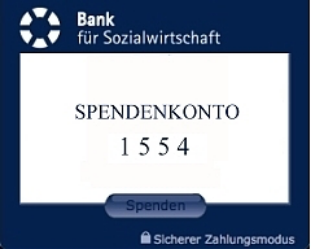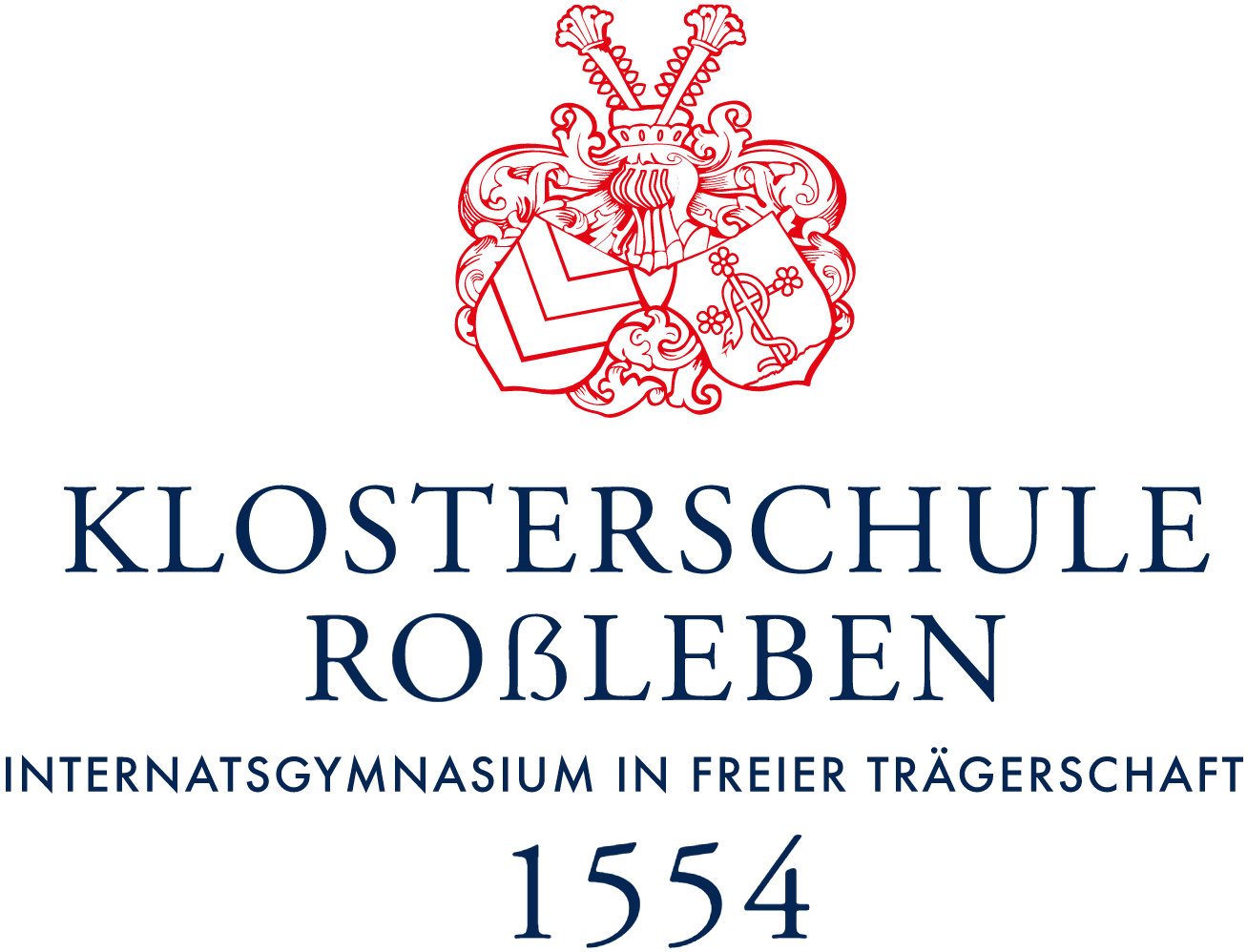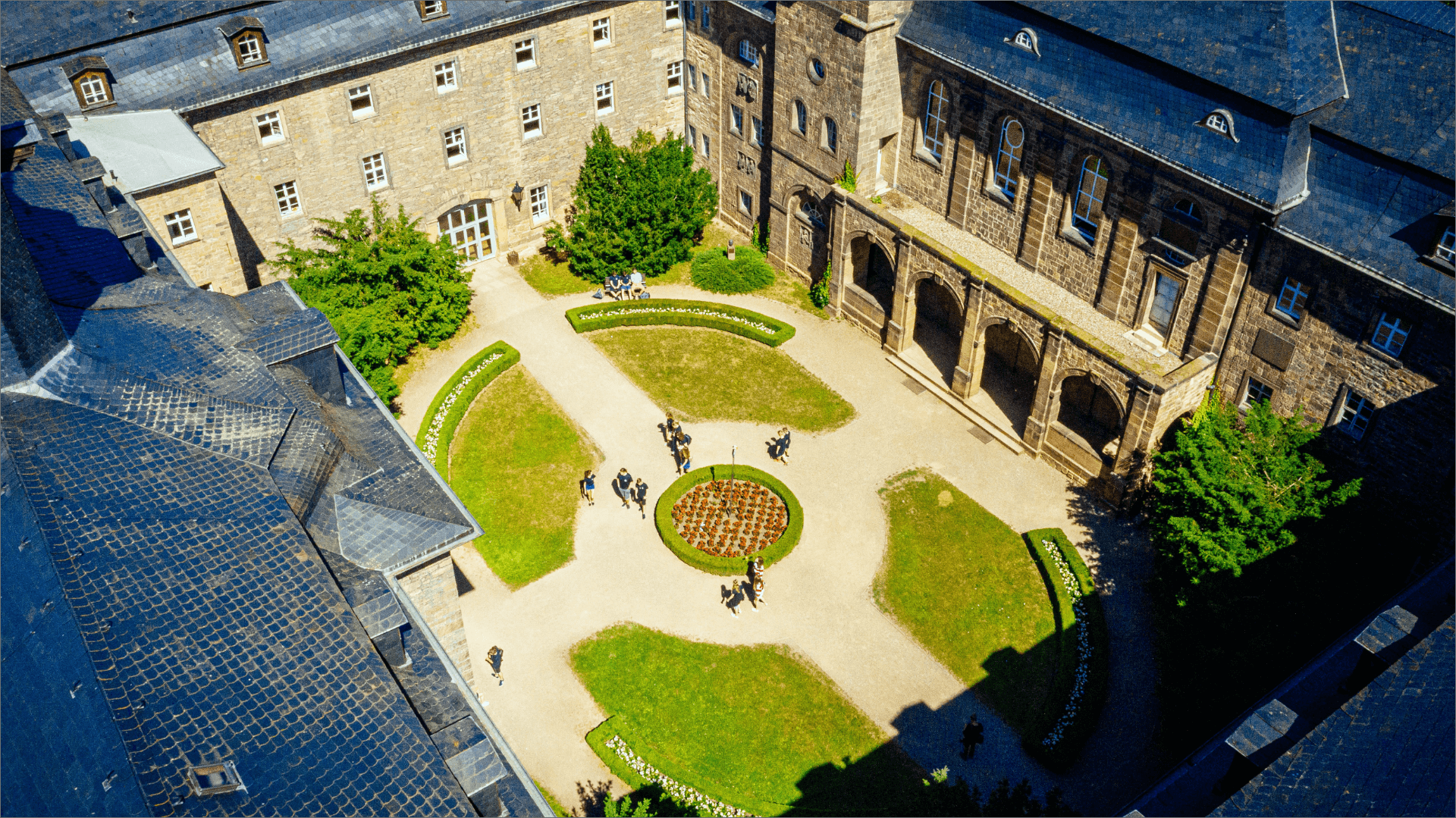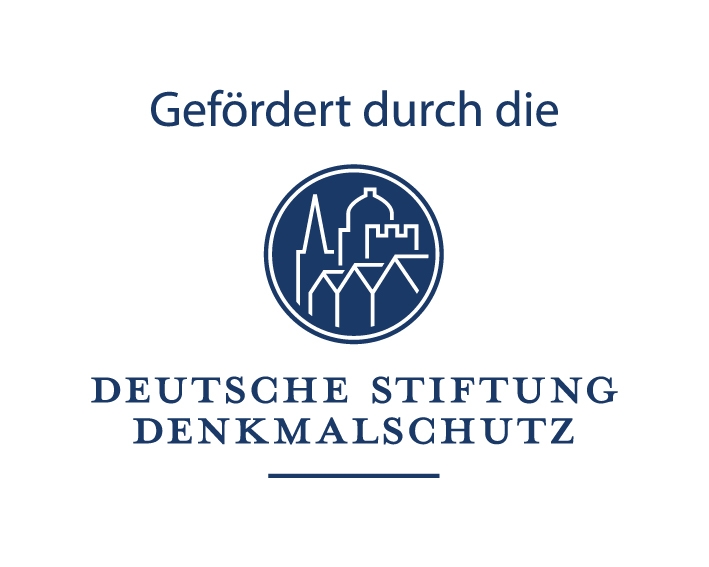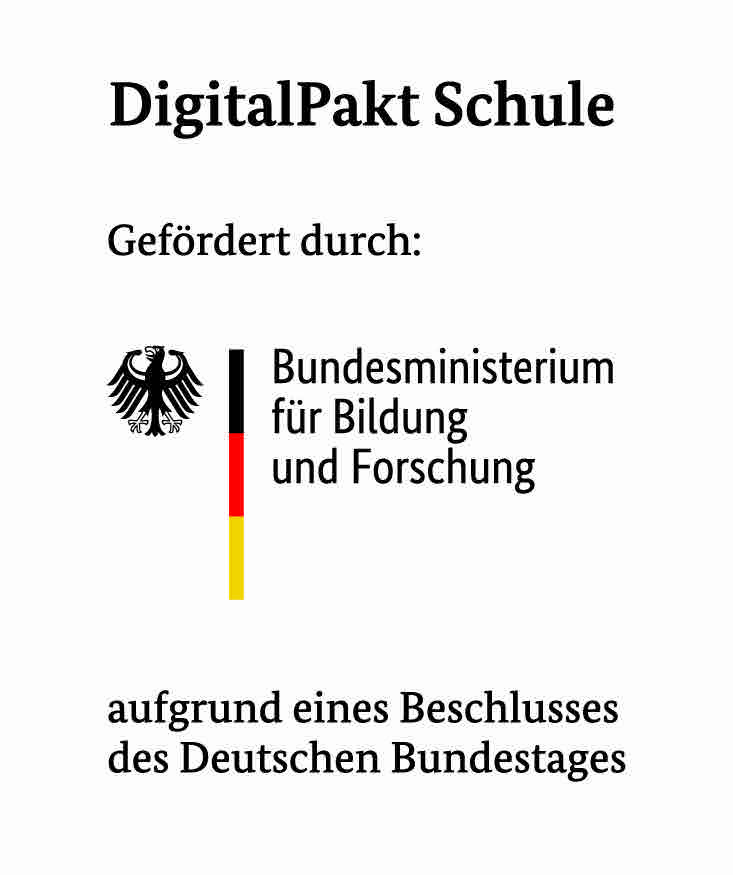Deep-rooted traditions combined with an innovative education
Thanks to the high quality of education, the individually tailored learning and support programmes, career relevant internship opportunities and wide range of leisure activities, we create exemplary conditions for the future life and career paths of our students. The Klosterschule Roßleben Foundation strives to provide young people with valuable education and life skills, regardless of the social status of their parents. Our school community is inclusive and democratic, based on Christian and humanistic principles. The Foundation is composed of various bodies: the ‘Agnatenversammlung’ and the ‘Erbadministratur’, which since 1554 has consisted of members of the same family. The Geschäftsfuhrer (CEO) is appointed by them. The Foundation exclusively and directly pursues charitable and benevolent aims and is a member of the Federal Association of German Foundations and the Association of German Private Schools.
History
SCHULE SEIT FAST
500 JAHREN
Die Stiftung Klosterschule Roßleben gilt als Schulträgerin der ältesten überkonfessionellen Internatsschule Deutschlands.
Um 1540 wurde das Zisterzienserinnenkloster Roßleben im Zuge der Reformation aufgehoben und durch Heinrich von Witzleben, Ritter und Doktor beider Rechte, eine Schulgründung angestrebt. Von Witzleben ließ sich von seinem Kurfürsten Moritz von Sachsen leiten, der schon 1543 in den verwaisten Klöstern Meißen und Pforta und 1550 in Grimma Landesschulen verortete. In Georg Fabricius, einem Schüler Melanchthons und seit 1546 Rektor der Fürstenschule Sankt Afra zu Meißen, fand Heinrich von Witzleben einen hervorragenden Berater für den Aufbau einer evangelischen Knabenschule in Roßleben. Im Sinne Luthers zielte man auf Bildung für alle Befähigten, unabhängig von deren sozialer Herkunft und realisierte dies durch die Förderung sogenannter Freistellen.
1554 wurde die Stiftung Klosterschule Roßleben als evangelische Knabenschule gegründet und nur ein Jahr später lobte Philipp Melanchthon in einem Brief an Heinrich von Witzleben die Aufgeschlossenheit des Adels für die Bildung.
Nach einem Großbrand 1686, welcher einen Großteil des Dorfes Roßleben und das stiftische Klostergut mitsamt Schule vernichtete, wurde der Unterricht für mehr als ein halbes Jahrhundert ausgesetzt. Man eröffnete 1742 den Neubau eines dreiflügeligen, barocken Schulgebäudes, der spezifisch für die Bedürfnisse des Schul- und Alumnatsbetriebes konzipiert war.
Im Ergebnis des Wiener Kongresses 1815 wechselte die Schulaufsicht für die Klosterschule Roßleben nach Preußen. Damit verbunden war auch die Einführung der Abiturprüfungen zu Ostern und Michaelis, um die notwendige Reife der Oberprimaner nachzuweisen.
Mit der Einführung des realgymnasialen Zweiges 1921 wurde dem Zeitgeist Rechnung getragen, denn man orientierte die Ausbildung auf naturwissenschaftliche Belange.
Die geltenden christlichen Wertvorstellungen führten bei der Mehrzahl der Lehrer und Schüler zu einer kritischen Einstellung gegenüber der nationalsozialistischen Ideologie. 1942 wurde die Klosterschule in eine staatliche Schule unter Aufsicht der Inspektion Deutscher Heimschulen entgegen dem satzungsgemäßen Anspruch des Erbadministrators umgewandelt. Dessen hartnäckigem Widerstand ist es vor allem zu verdanken, dass die Klosterschule nicht zu einer NAPOLA umfunktioniert werden konnte.
Die Stiftung, einschließlich der Schule und 280 ha landwirtschaftlicher Nutzfläche, wurde nach dem Krieg 1948 enteignet und die verstaatlichte Schule anschließend in der DDR als Erweiterte Oberschule weitergeführt. Im August 1949 benannte man anlässlich des 200. Geburtstages von Johann Wolfgang v. Goethe die stiftische Klosterschule und spätere Landesheimoberschule in Goetheschule um. Ihr Schwerpunkt lag seit 1952 auf den Klassen mit erweitertem Russischunterricht in Vorbereitung auf Auslandsstudien in den sozialistischen Staaten.
Nach der deutschen Wiedervereinigung konnte die Stiftung lediglich das über acht Hektar umfassende Schulgelände mit allen Gebäuden käuflich zurückgewinnen. Damit erfolgte ab 1991 die Grundsanierung mit einem Investitionsaufwand von rund 11 Millionen Euro. Die Stiftung wurde Trägerin des Internats und mit der Privatisierung der Schule 2009 auch des Gymnasiums in freier Trägerschaft.
Heute nimmt die Klosterschule Roßleben als überkonfessionelles Internatsgymnasium für Mädchen und Jungen wieder einen besonderen Platz unter den Internaten in Deutschland ein.
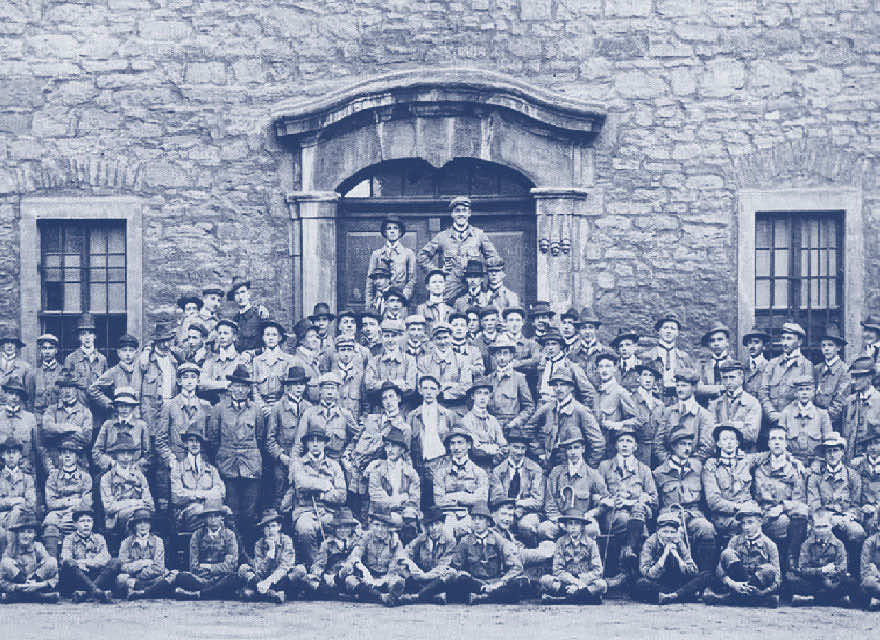
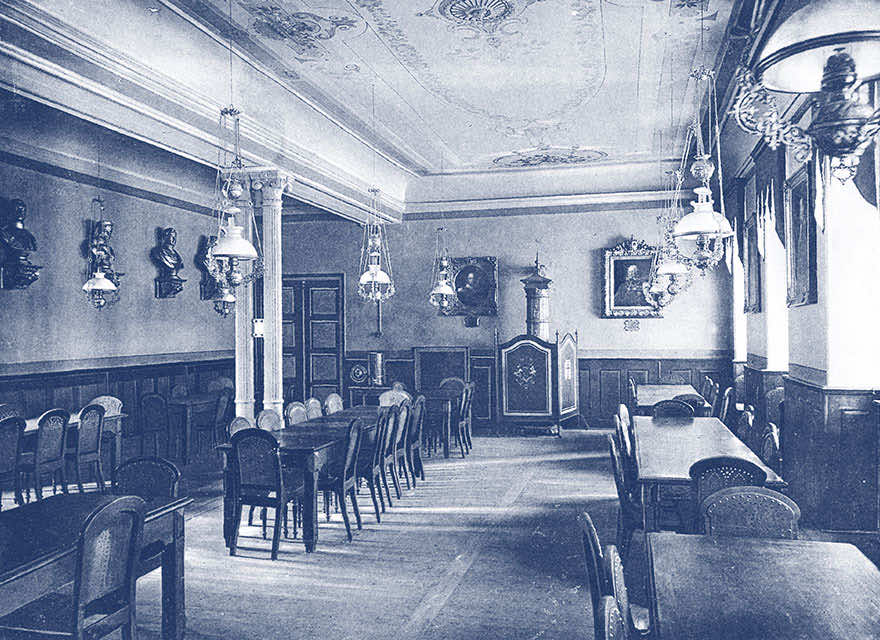
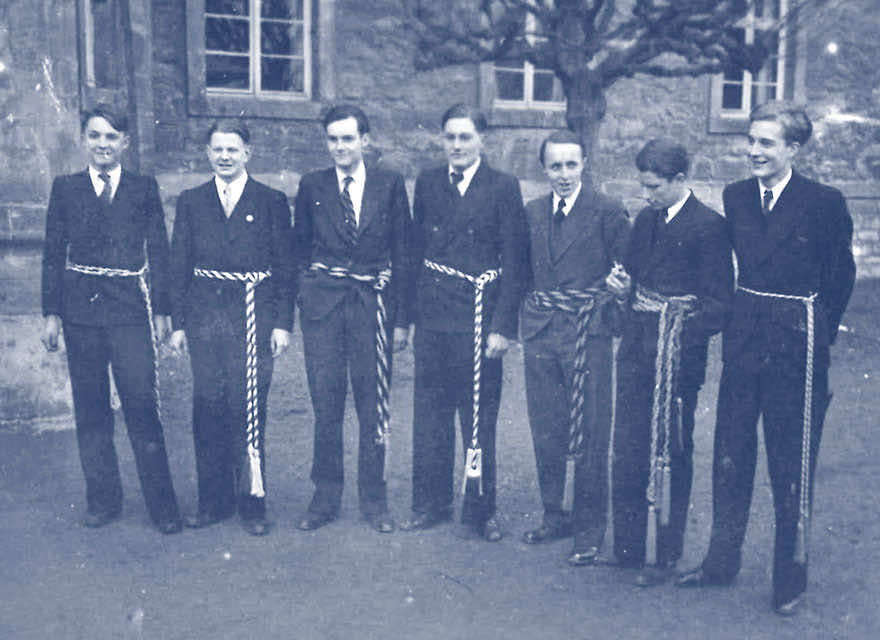
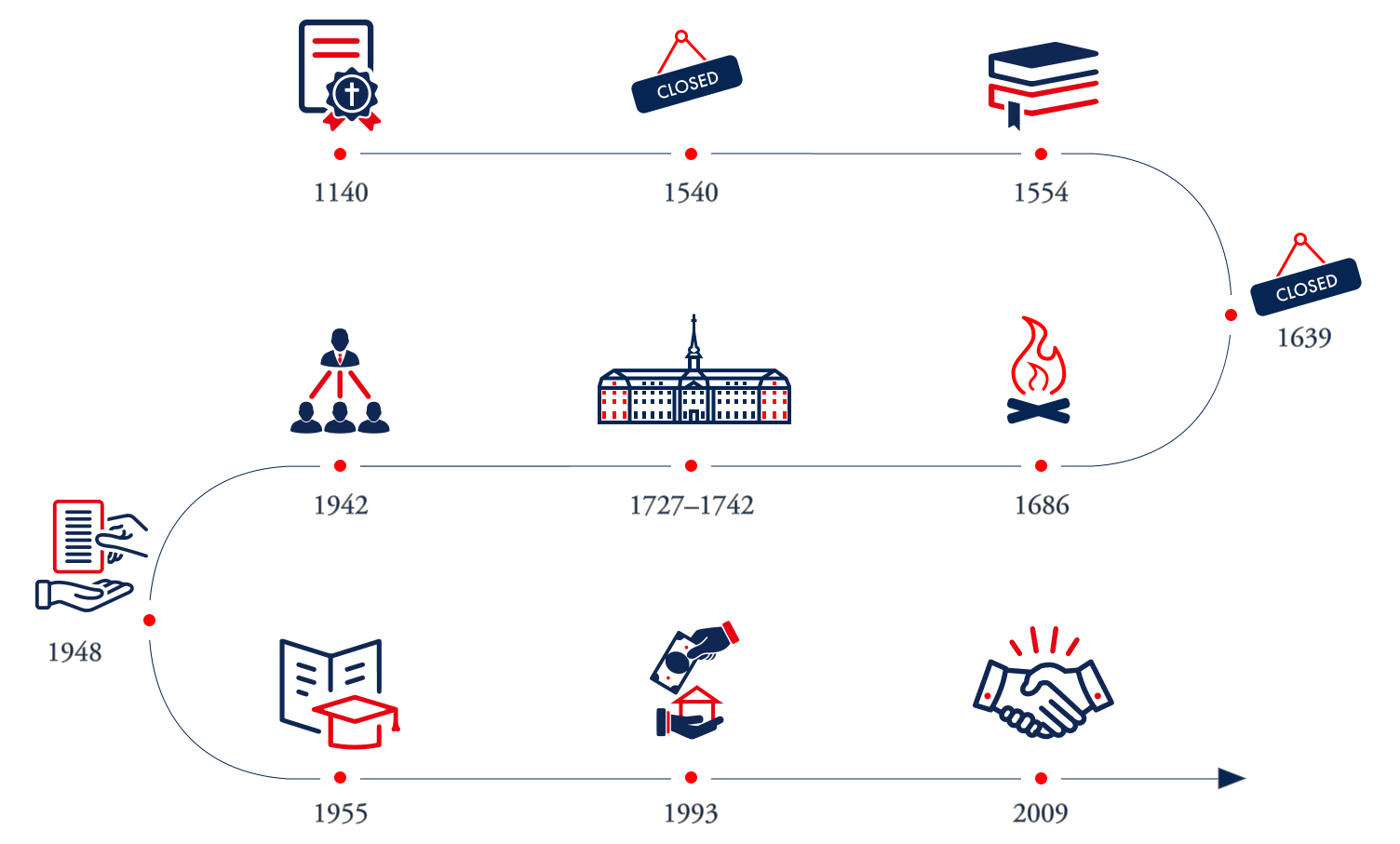
WIDERSTAND
WANDERAUSSTELLUNG
STIFTUNG 20. JULI
Generalfeldmarschall Erwin von Witzleben, ein Mitglied der Stifterfamilie und elf ehemalige Schüler der Klosterschule Roßleben schlossen sich dem Netzwerk des Widerstands gegen das totalitäre Regime Hitlers an. Aus keiner anderen Schule gingen so viele Verschwörer hervor, die sich an der Planung und Durchführung des Attentates von Claus Schenk Graf von Stauffenberg auf Hitler beteiligten. Die Schüler, die die Klosterschule vor allem in den 1920er Jahren besuchten, verband Gemeinsamkeit und Freundschaft des Roßlebener Internatslebens und eine am protestantischen Glauben orientierte Wertebildung.
Zu ihnen gehörten Peter Graf Yorck von Wartenburg, Ulrich-Wilhelm Graf von Schwerin, Heinrich Graf von Lehndorff, Egbert Hayessen, Wolf-Heinrich Graf von Helldorff und Nikolaus von Halem, die, wie auch Generalfeldmarschall Erwin von Witzleben, nach dem gescheiterten Umsturzversuch vom nationalsozialistischen „Volksgerichtshof“ zum Tode verurteilt und ermordet wurden. Die Familien der Attentäter kamen in Sippenhaft, die Kinder unter neuem Namen in das nationalsozialistische Kinderheim Bad Sachsa.
Ende April 1945 übernahm der ehemalige Klosterschüler von Alvensleben die Leitung der spektakulären Befreiung 139 prominenter Geiseln, darunter die früheren französischen und ungarischen Ministerpräsidenten, der ehemalige österreichische Bundeskanzler und Pfarrer Niemöller, aus den Händen der SS in Südtirol.
In enger Partnerschaft mit der Stiftung 20. Juli und Zusammenarbeit mit der Gedenkstätte Deutscher Widerstand unter Leitung von Prof. Tuchel entstand eine Sonderausstellung „Schüler der Klosterschule Roßleben im Widerstand gegen den Nationalsozialismus“, die nicht nur in Roßleben und Berlin, sondern auch als Wanderausstellung in zahlreichen anderen Städten gezeigt wird.
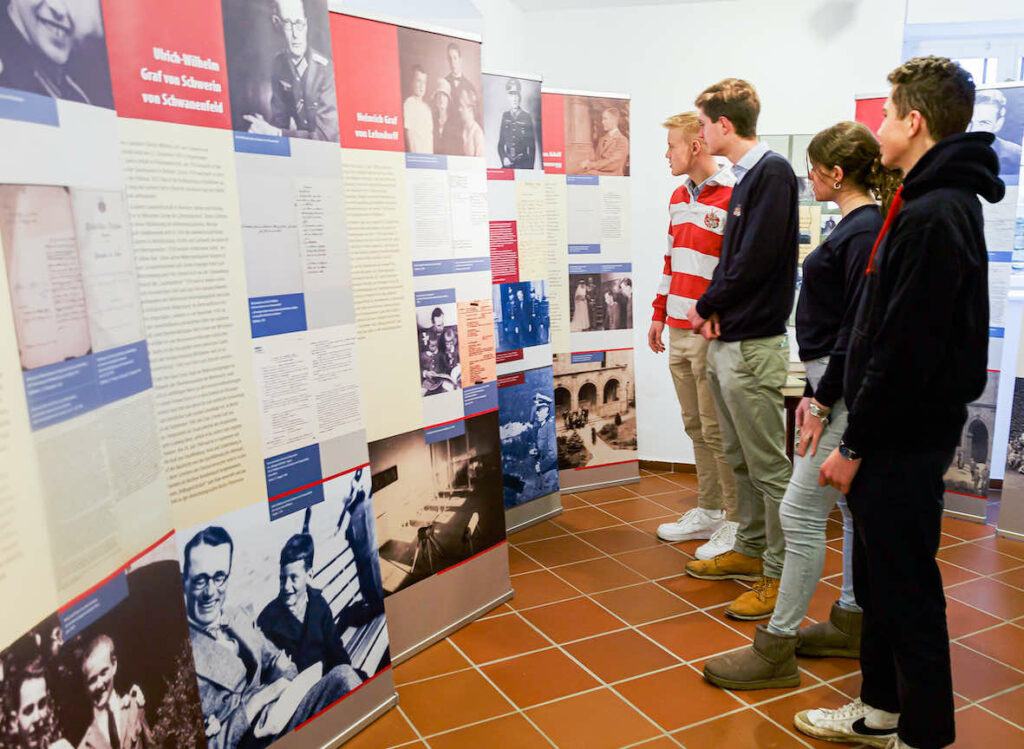
CAMPUS
ACHT HEKTAR PARKANLAGE
JETZT TOUR STARTEN
VISION AND VIRTUES
OUR VALUES ARE ALL-IMPORTANT
Tapferkeit, Klugheit, Bescheidenheit und Gerechtigkeit (Bravery, wisdom, modesty and justice) – these four key virtues have always been the cornerstone of our work here at Roßleben. Virtues are timeless and of great importance for our society, in the present and the future, just as much as they were in the past. We want to make these values tangible and perceptible to our students, thus helping us fulfil our obligation of moulding our young people into respectable figures ready for adulthood. For many students a religious connection is important, and we aim to only deepen this with our student led ‘Andachten’ (prayer services) and church services in the ‘Klosterkirche’ (church). In addition to the daily school routine, Roßleben promotes many talents and creates formative shared experiences.
Commitment to the Klosterschule Roßleben community is also very important to us, with older students taking care of younger children as mentors, allowing them to take on more responsibility in their own lives. Through “Nähen mit Herz”, our sewing ‘Gilde’, we support the HerzCaspar project.
In addition, there are numerous initiatives throughout the year, such as supporting the senior citizens’ home or working at the volunteer fire brigade in Roßleben. Encouraging dedication and initiative from our students is important to us and annually our year 12s take part in a fundraising project to raise money for charity during the Christmas season. In recent years, for example, we have supported Unicef, SOS Kinderdorf, Doctors Without Borders and many other organisations with these donations.
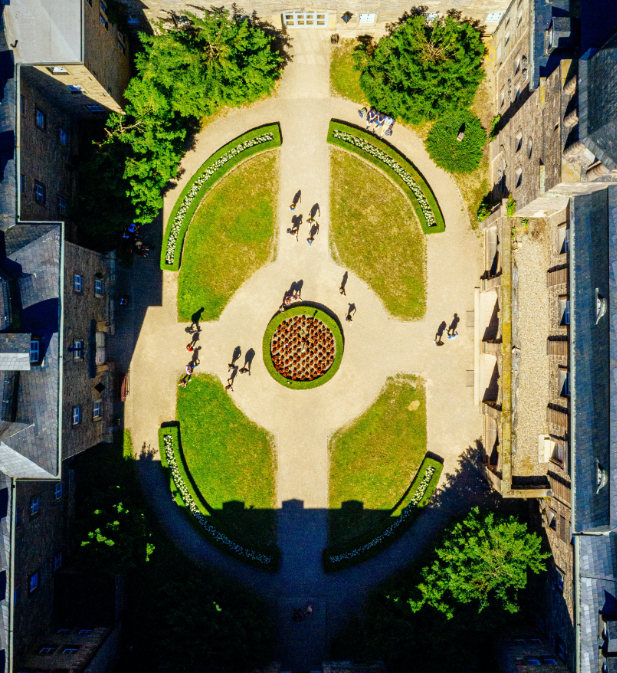
ERBADMINISTRATION
OUTSTANDING COMMITMENT OVER GENERATIONS
In 1554, Dr. Heinrich von Witzleben founded the Roßleben Klosterschule after taking over the abandoned monastery. Since then, it has been a matter of the heart of the von Witzleben family to accompany and promote the development of the school. For centuries, it has ensured economic stability, both after the 30-year war and after reunification, as well as good staffing. Above all, however, it is important to the family that the values that have always characterized Roßleben are preserved, while at the same time providing impetus for innovation. The hereditary administrator, currently Dr. Moritz v. Witzleben, represents the interests of the entire family. He is assisted by three other members in the so-called Erbadministratur. It is an essential task of the hereditary administration, together with the employees of the foundation, to take up the constantly new challenges and to set the right educational paths for the Foundation Klosterschule Roßleben. It is particularly important for the family to have direct contact with the students, the parents and all the staff at the Klosterschule. As often as possible, the hereditary administrator is therefore on site. A special highlight for the new boarding school students is the reception and the conversations in the building of the hereditary administrator. This unique commitment of a single family over so many generations to a school is documented by the Liste der Administratoren und Erbadministratoren.
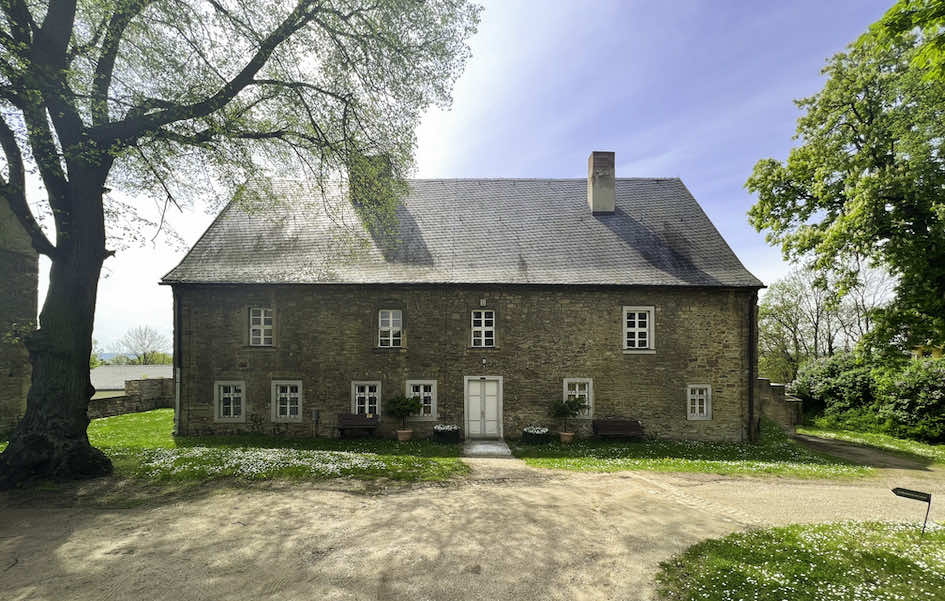
Cooperation *
BETTER TOGETHER
Whether it be our Alumni, firms like Siemens, Mazars from Dresden or Sumitomo from Wiehe, Klosterschule Roßleben works together with many partners, always with the aim of guaranteeing the best possible education for our students. We are proud for example to have the support of the Johanniter, who regularly help us with first aid training here at the school.
Generation 21
In 2006 we gained a valuable partner via our Siemens-school partnership. This partnership is primarily made up of close collaboration on school projects, with Siemens often providing the school with teaching materials, activities such as interview training or supporting science projects. Further information can be found at www.siemens.de/ausbildung and medienportal.siemens-stiftung.org
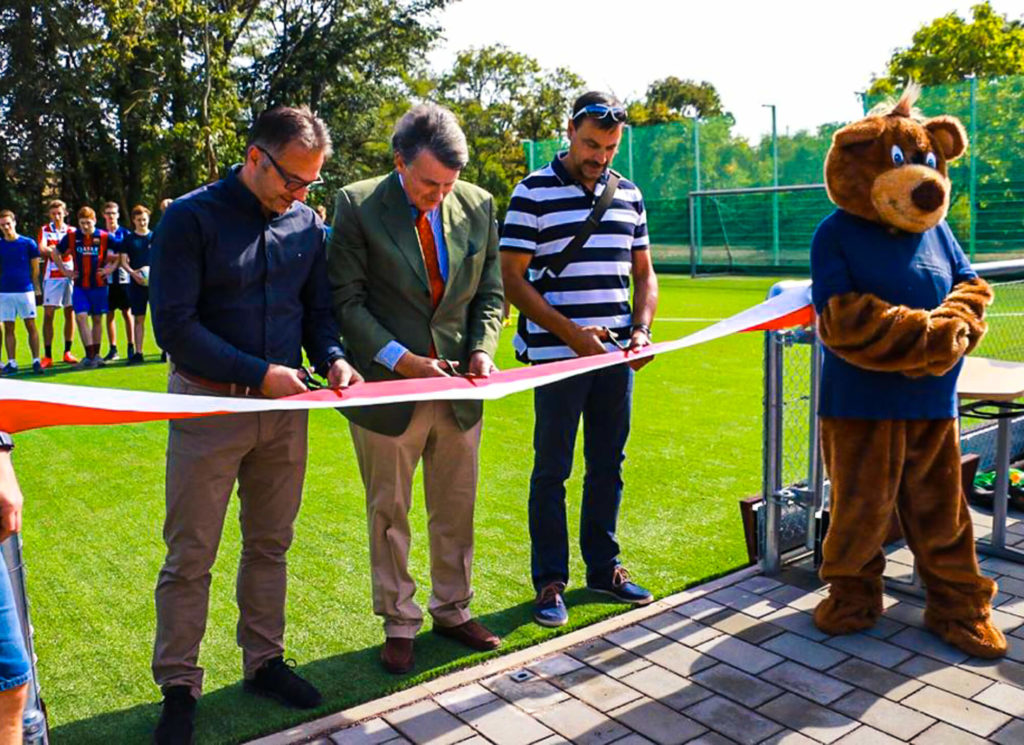
OUR ALUMNI
FRIENDS FOR LIFE
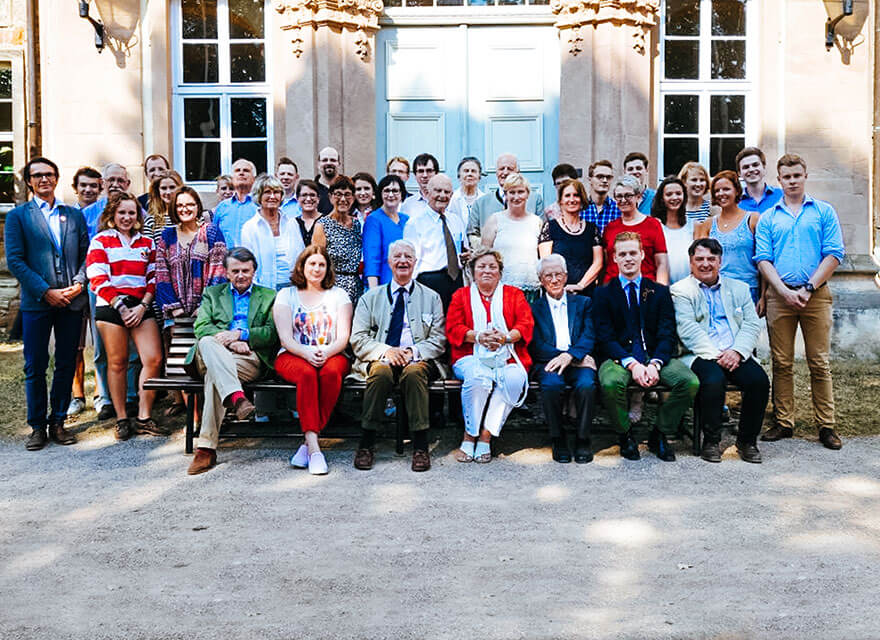
SUPPORT ROßLEBEN
LEBEN, WOHNEN UND SCHLAFEN –
IN DEN GEMÄUERN EINES ALTEN KLOSTERS
As a non-profit foundation, the social aspect of our work is paramount to us. Donations to our scholarship fund, for the protection of historical monuments, or for expansion of our modern teaching and learning materials, are therefore important to us and we are grateful to any donations we receive. With the help of the BFS Net.Tool from the Bank für Sozialwirtschaft, you can also make a donation to our school online in a secure and uncomplicated way. To do so, simply click on the blue button labelled “Spendenkonto 1554” on the right. You can of course also send your donation to us via bank transfer: Bank für Sozialwirtschaft Konto: 34 98 703 BLZ 370 205 00 IBAN: DE93 3702 0500 0003 4987 03 BIC: BFSWDE33XXX If using this method, kindly provide us with your name and address on the bank transfer slip so that we can send you a donation receipt.
